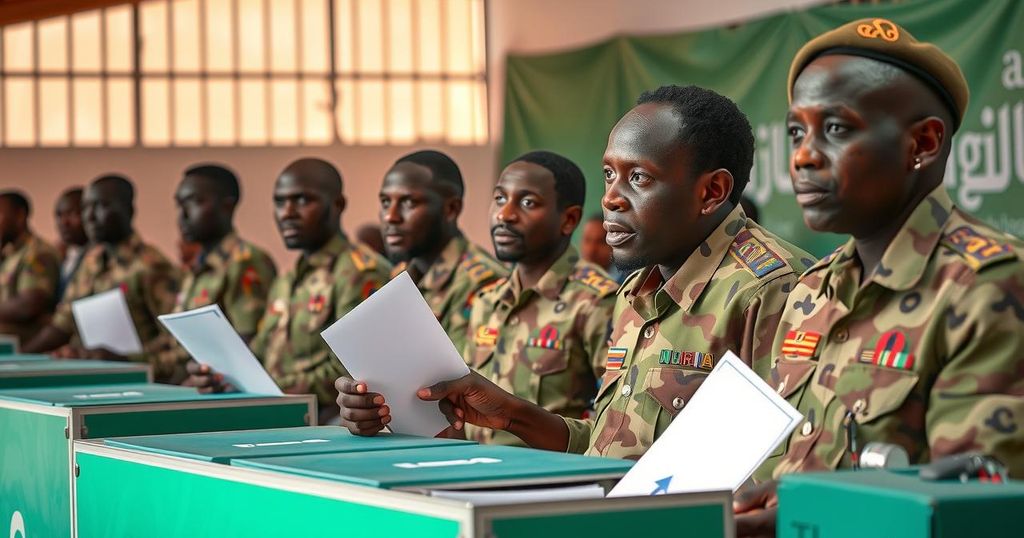Chad held parliamentary elections on Sunday with low voter turnout, largely due to an opposition boycott amidst concerns over the electoral process. These elections signify the end of a three-year military transitional period following the death of former President Idriss Deby. The results are critical in determining the political landscape as opposition parties criticize the elections as illegitimate and a continuation of military rule.
Chadians participated in parliamentary and regional elections on Sunday characterized by notably low voter turnout amidst a boycott led by the principal opposition groups. The elections, marking the conclusion of a three-year military transitional period following leadership changes initiated by the death of former President Idriss Deby in 2021, are significant as they represent Chad’s first parliamentary elections in over a decade. Junta leader Mahamat Idriss Deby, who recently secured a disputed presidency, claimed the electoral process was designed to foster much-needed decentralization in governance.
Despite the call for a restored civilian leadership, over ten opposition parties, including the prominent Transformers party led by Succes Masra, opted to abstain from voting due to accusations that the electoral process was compromised and lacked credibility. Public sentiment reflected skepticism about the election’s integrity, with some locals choosing to remain home rather than participate in what they deemed a “charade.” Specifically, voter turnout in the capital city of N’Djamena was notably minimal, with reports indicating only a few individuals casting ballots in polling stations.
The election, held in a country grappling with security issues from extremist groups such as Boko Haram, is pivotal in determining the trajectory of Chad’s democratic transition. Analysts express concern over the potential extensions of military rule, arguing that the absence of significant opposition undermines the goals of establishing a democratic framework. Political scientist Mahamat Oumar Adam highlighted the necessity of this election, suggesting that it serves as the final key phase in transitioning away from military governance.
The parliamentary elections in Chad are a critical milestone after a prolonged period of military rule that initiated following the death of longtime president Idriss Deby in 2021. The transitional government, led by his son Mahamat Idriss Deby, has faced scrutiny from opposition parties, prompting a boycott of the elections by several groups who question the legitimacy of the electoral process. This election is particularly significant because it is part of Chad’s promise to return to democracy, which has been stalled since the nation’s independence from colonial rule in 1960. The efforts toward stability come amidst ongoing security challenges and the need for effective governance in the peripheral regions of Chad.
In summary, the parliamentary elections in Chad represent a pivotal moment in the nation’s quest for democracy after a long tenure of military governance. However, low voter turnout due to a boycott orchestrated by significant opposition parties raises questions about the legitimacy of the electoral process. As Chad navigates through socio-political complexities and security challenges, the success of this election remains crucial in determining the future direction of governance in the country as it seeks to escape the shadows of its military past.
Original Source: apnews.com






